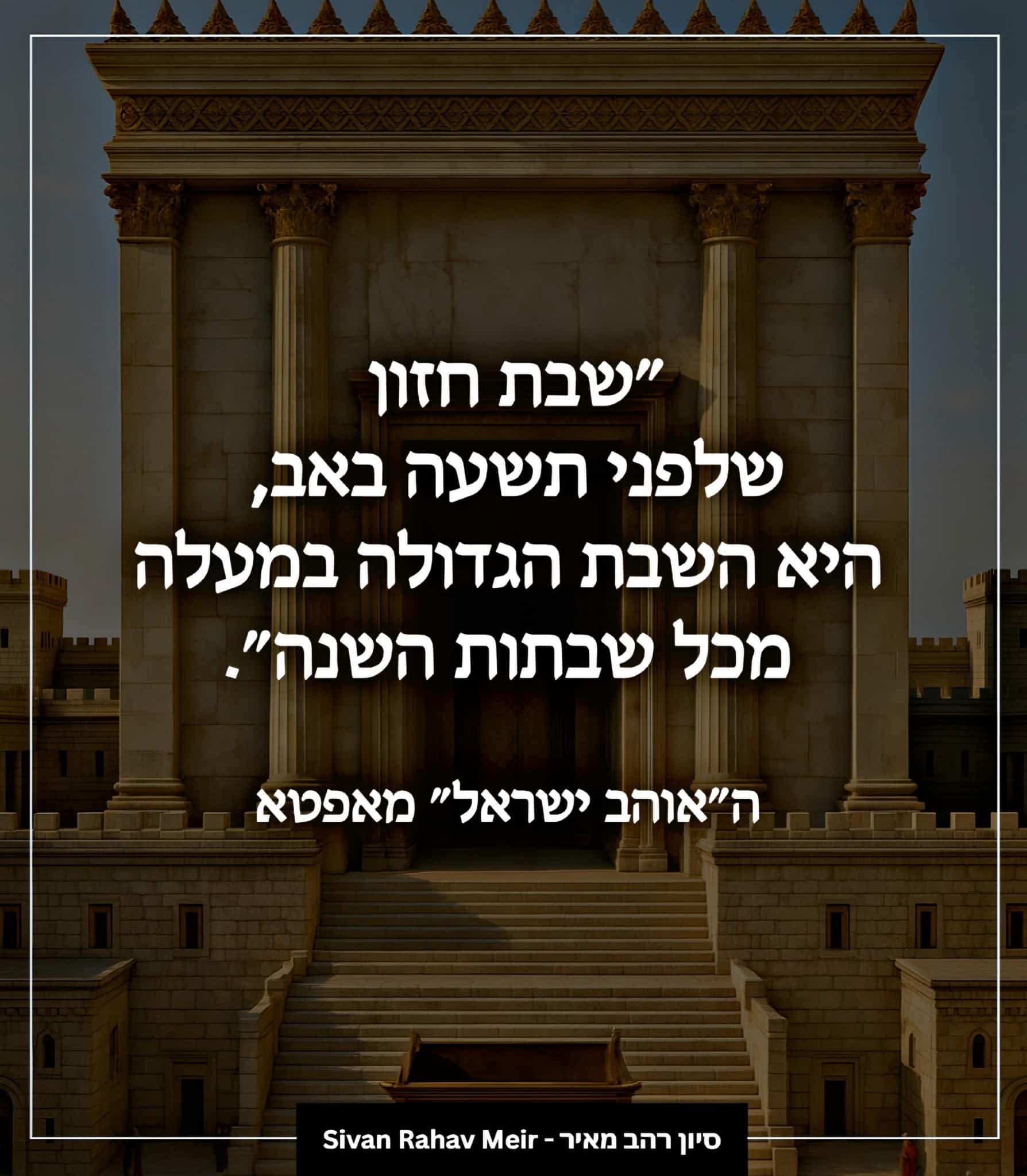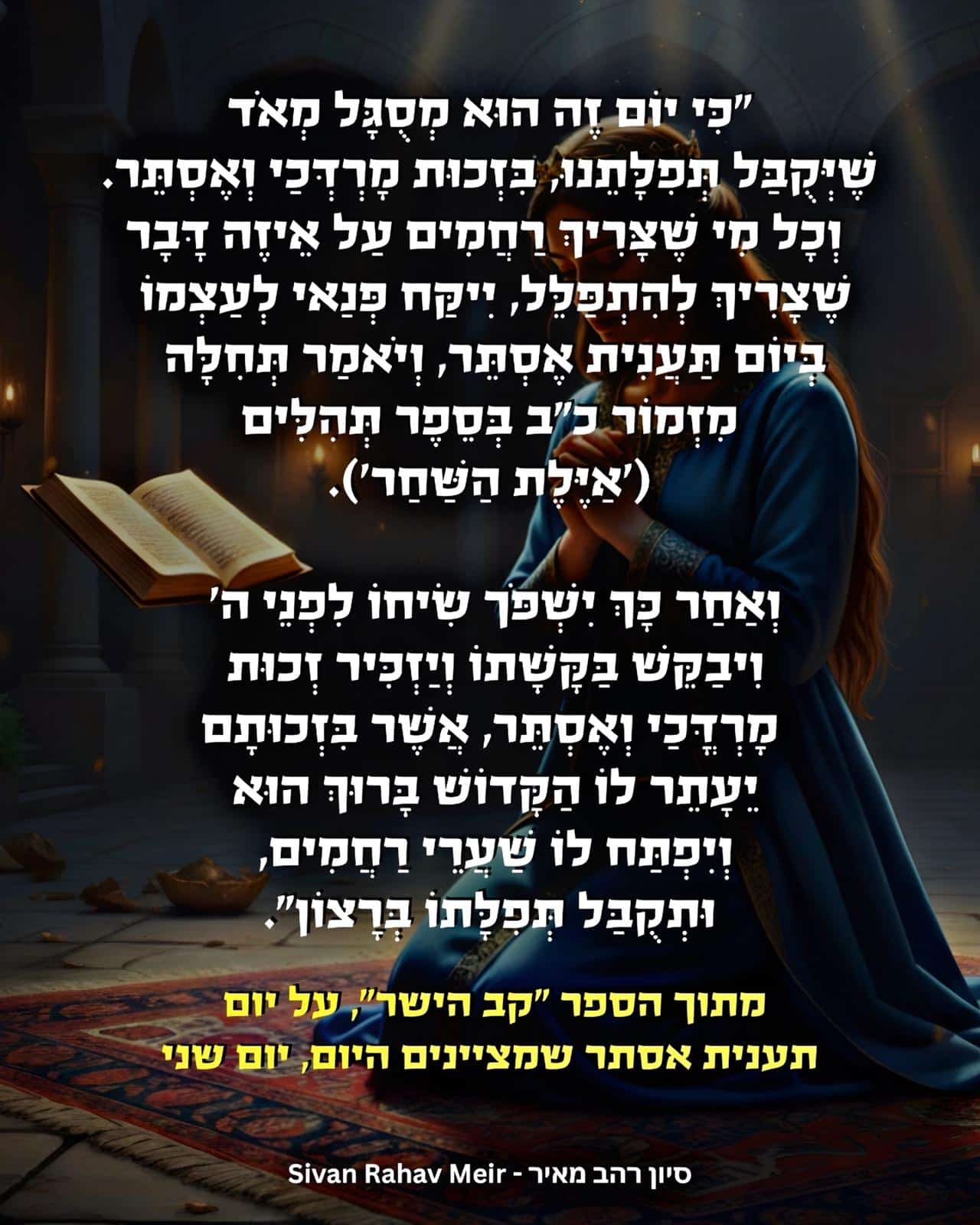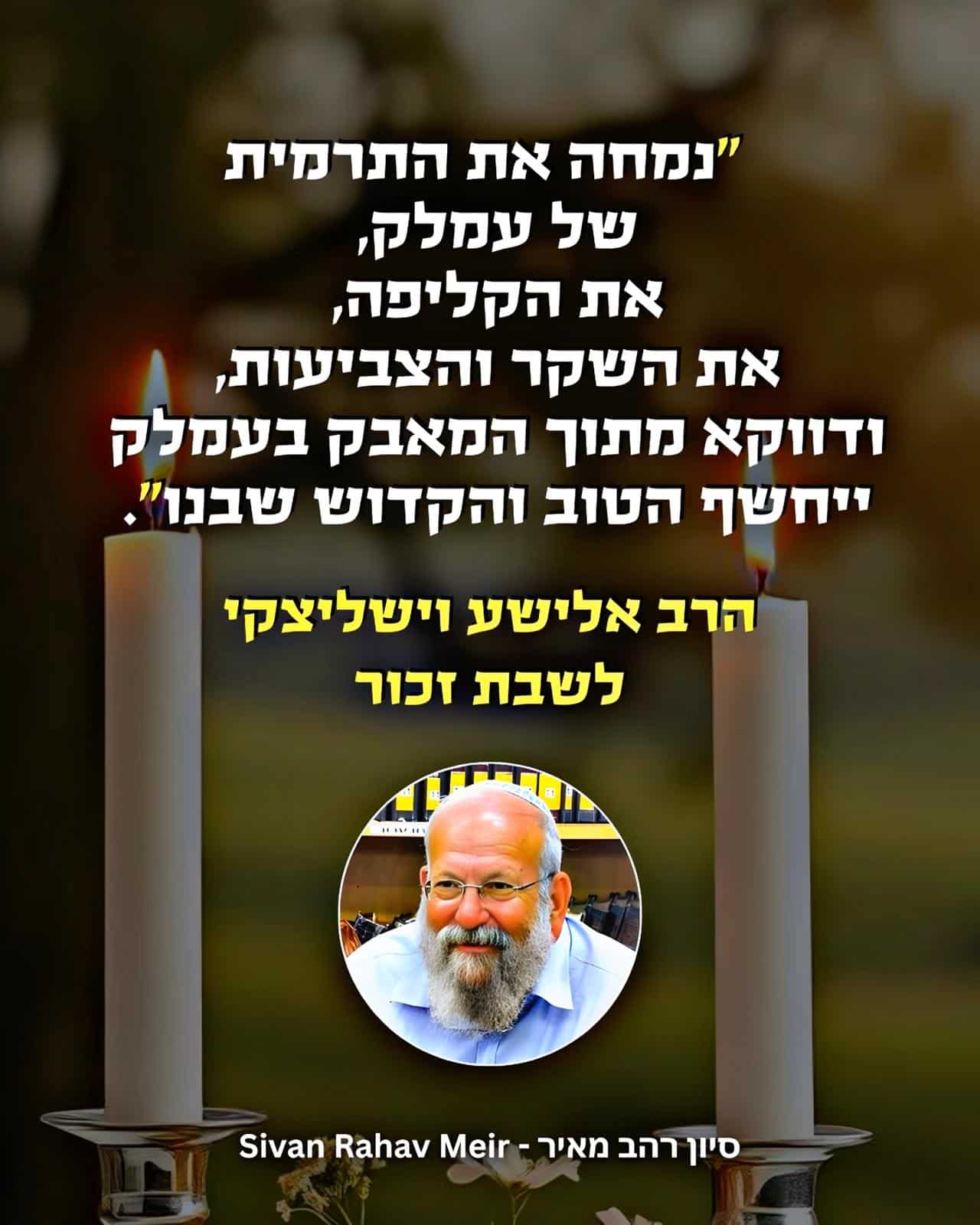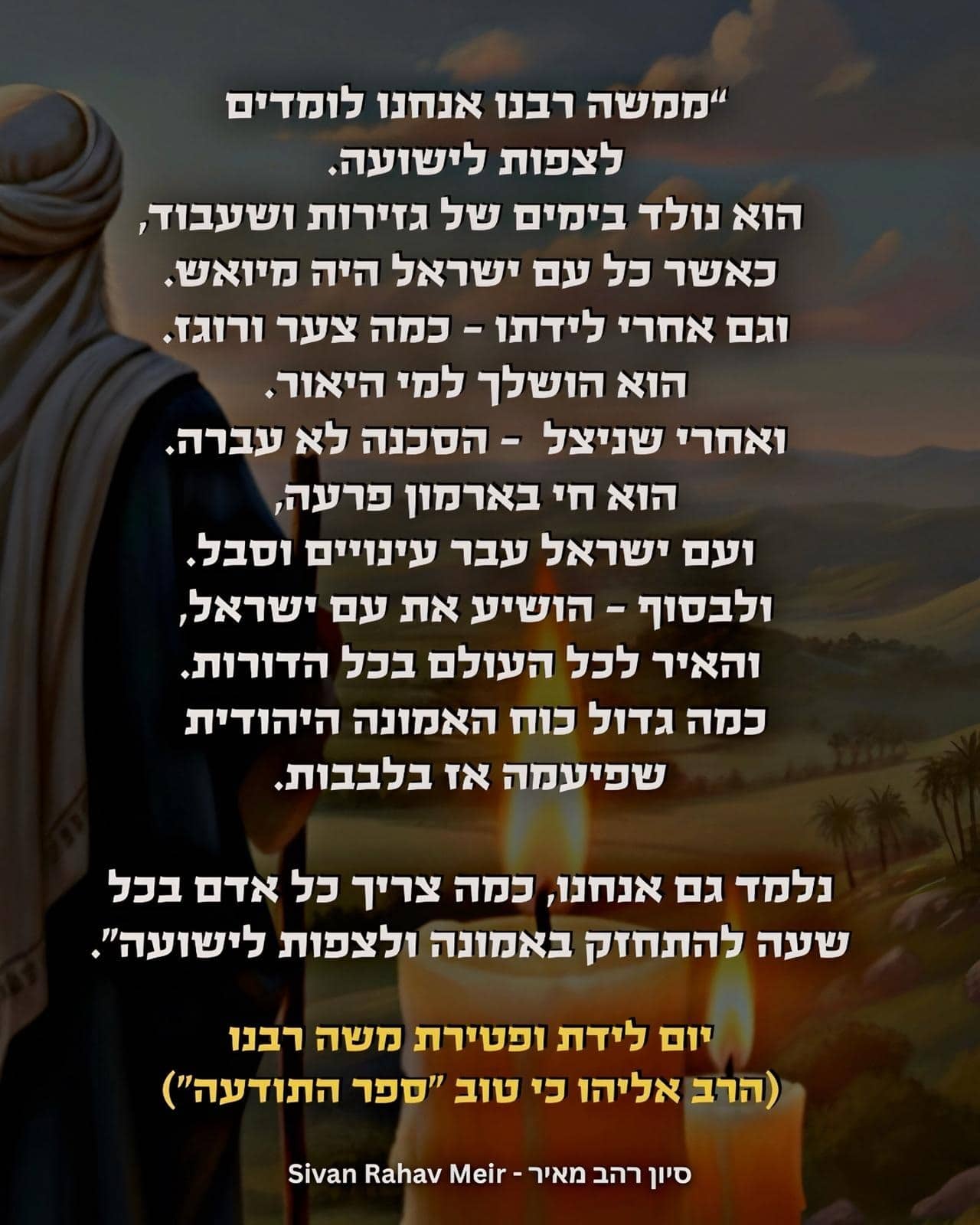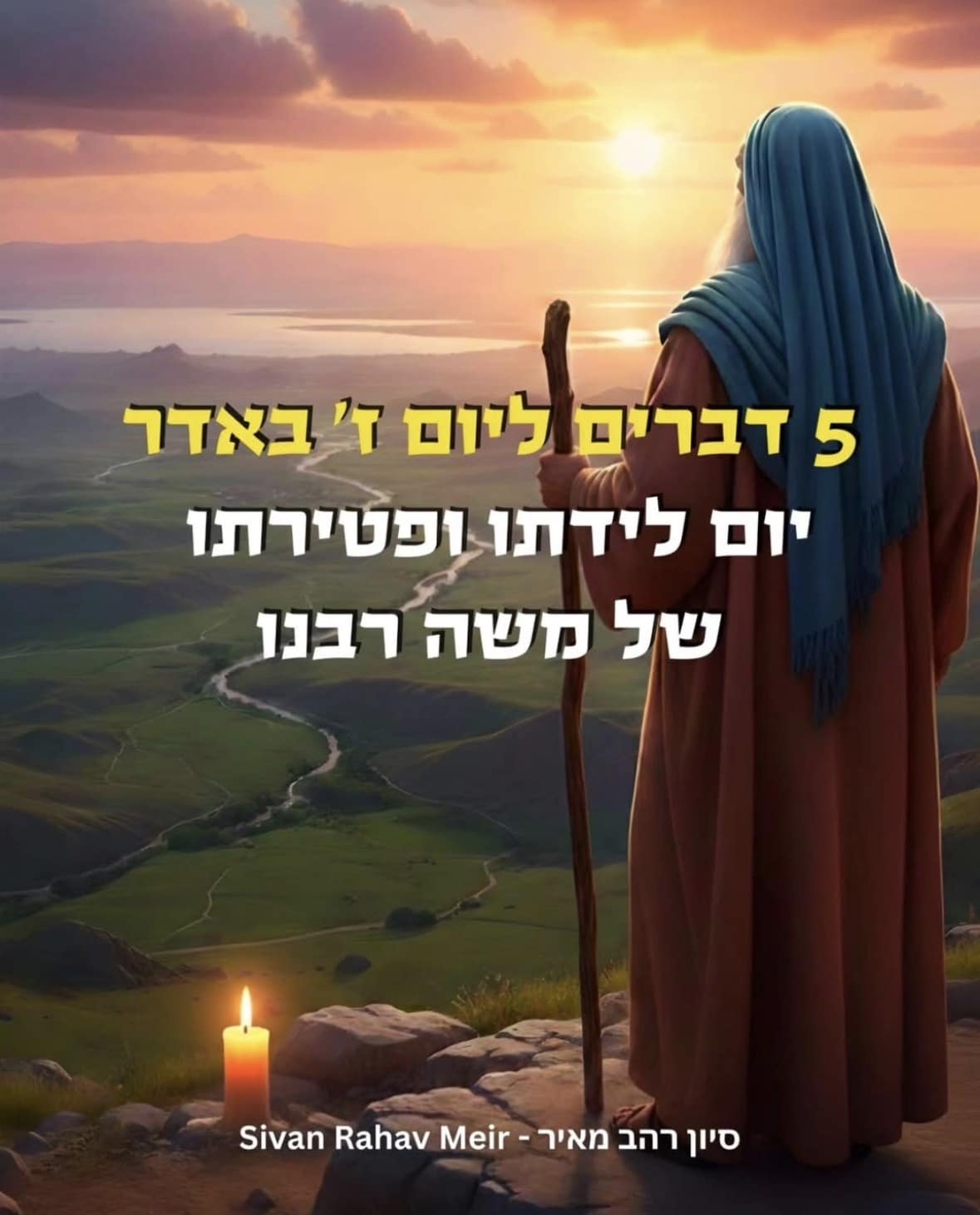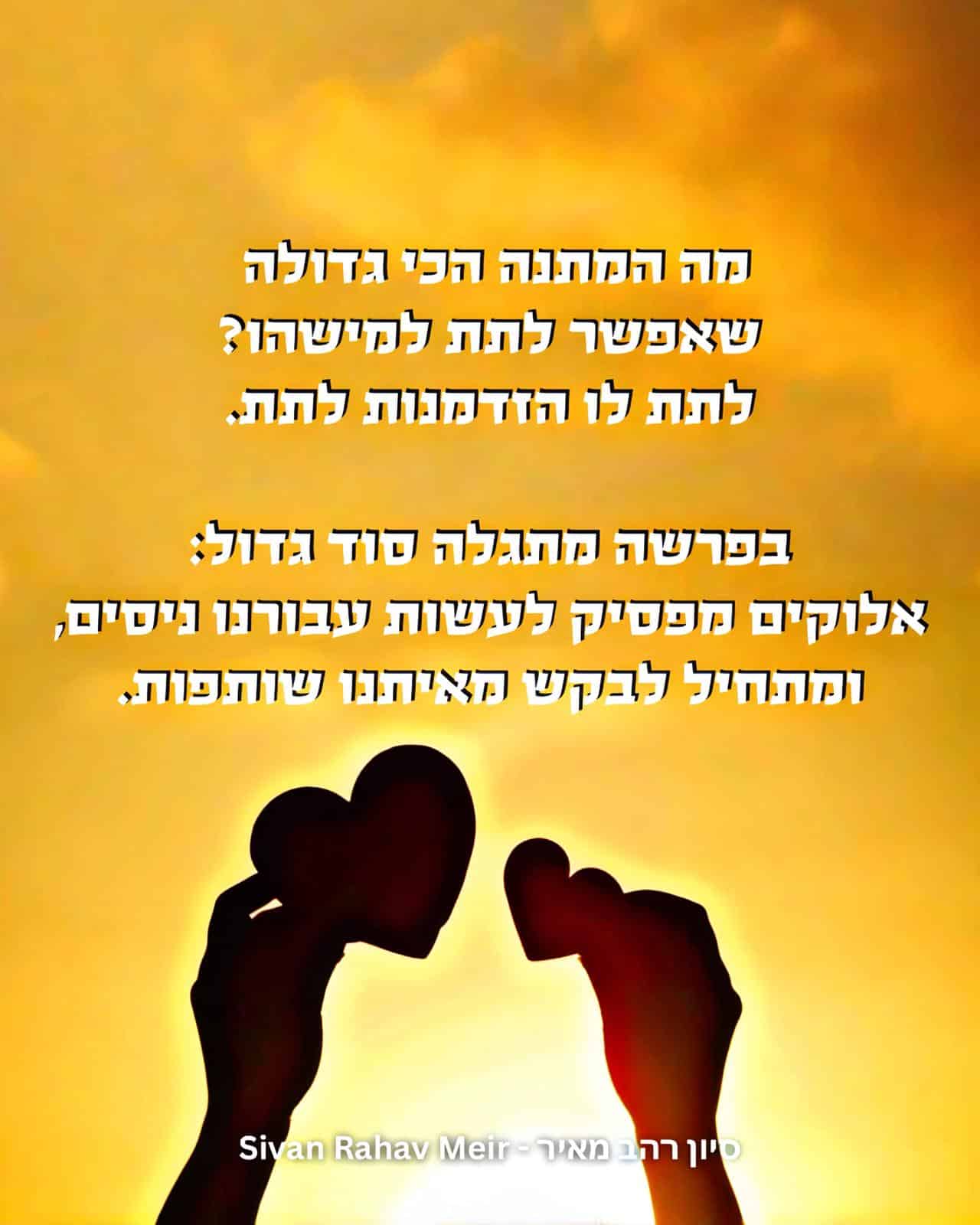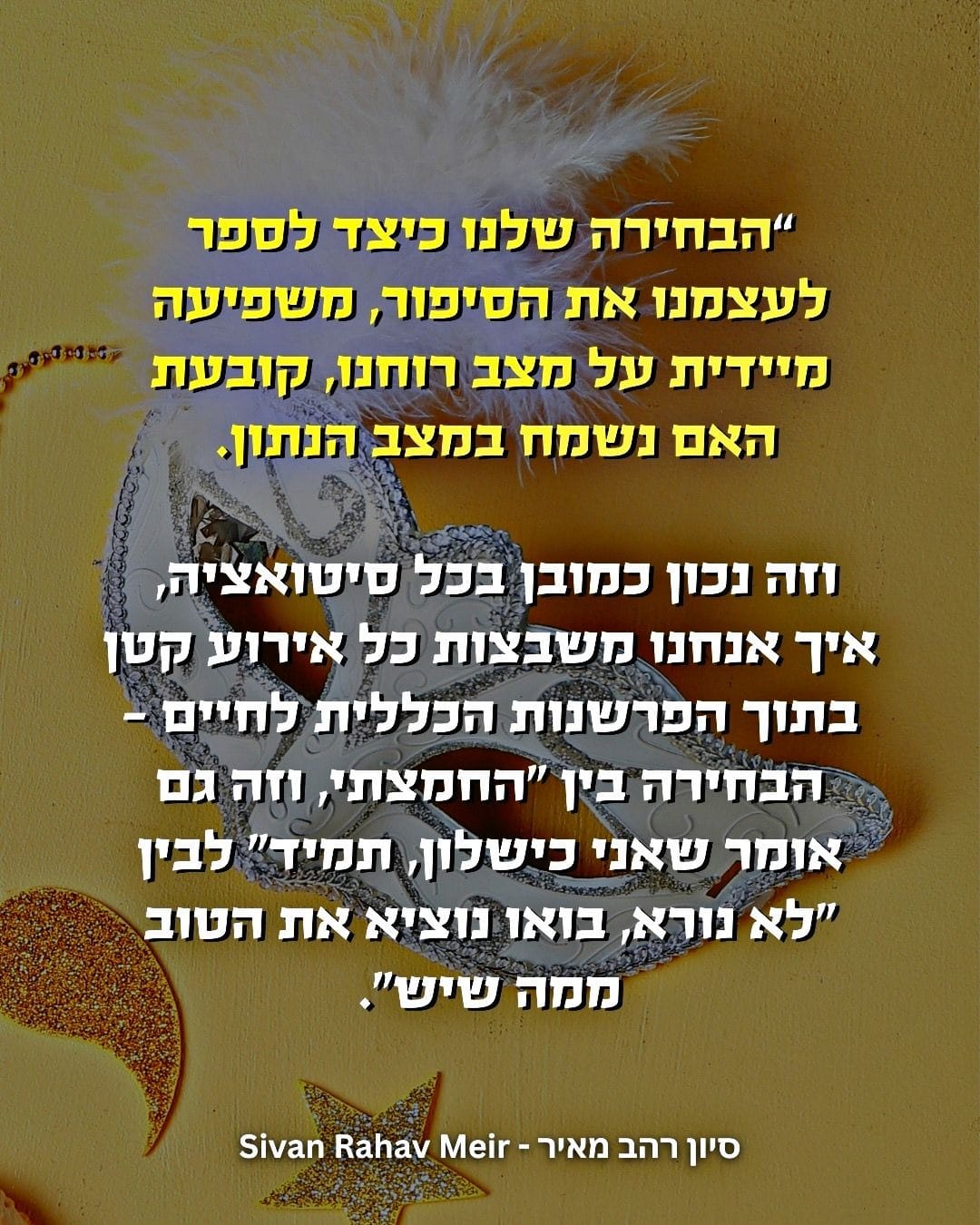1. This Shabbat, which comes before the Ninth of Av, has a special name – "Shabbat Chazon" (Shabbat of Vision). It is named after the Haftarah, the reading that is read after the Torah reading, and begins with the words "The vision of Isaiah son of Amos.” Our commentators say that on this Shabbat everyone can imagine what their vision is, personal and national. What are our deepest hopes and dreams.
2. On Shabbat we will begin a new book in the Torah, the Book of Deuteronomy, the fifth and final book of the Pentateuch, with the portion of Devarim (Words). The entire book is Moshe’s farewell speech to the people of Israel. He reminds us of the long journey in the desert, and prepares us for a holy life in the Land of Israel.
3. Before the end of Shabbat, at around seven-thirty in the evening, the fast begins. The Ninth of Av, the saddest day of the year. At the end of Shabbat we go to evening prayers at the synagogue, sit on the floor as is the custom of mourners, read the scroll of Lamentations and the elegies. The fast continues until Sunday evening (eight and a bit, Israel time).
4. This is the day on which both Temples were destroyed and we mourn on it for what was lost, but also for all the troubles and disasters, for everything that is difficult for us, both on the national level and on the personal level. We don't eat, don't drink, don't wear leather shoes, and there are many more laws and customs.
5. The purpose of the fast is not to sanctify sorrow and torment the body, but to repair the soul. To improve us. This is the time to do soul-searching about the problems that caused our destruction. To repair the relationships between us, and between us and God. We don't want to fast again next year but to change our situation and that of the entire world.
Shabbat Shalom, besorot tovot.
